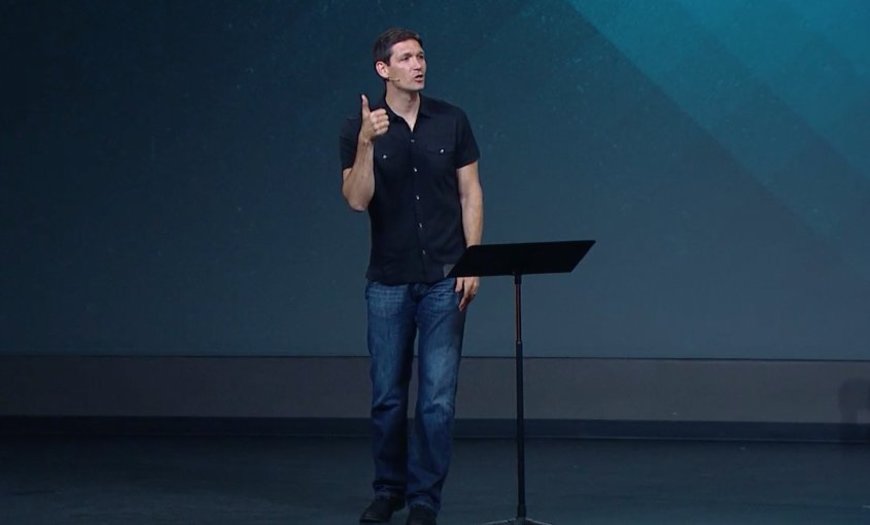This week, Christians from all across the country traveled to Memphis, Tennessee, to attend a special conference, “MLK50: Gospel Reflections from the Mountaintop,” celebrating Martin Luther King’s life and legacy. The April 3-4 event, which featured talks by Matt Chandler, Jackie Hill Perry, Eric Mason, Russell Moore, John Piper, and Benjamin Watson, was put on by the Ethics & Religious Liberty Commission and The Gospel Coalition.
READ: URGENT PRAYER REQUEST: Hospital Finally Agrees To Give Alfie Evans Another Chance
Matt Chandler, who serves as lead pastor of The Village Church in Texas, kicked off day two of the conference with his keynote speech, “Understanding and Overcoming the Inconsistencies in White Evangelicals on Racial Issues.”
Here is my sermon from #MLK50Conference. I pray it is helpful. https://t.co/NrzeXE5DKd
— Matt Chandler (@MattChandler74) April 5, 2018
Chandler began by addressing what he called “inconsistencies” with how white evangelicals address the issue of racism. He stressed the importance of listening. He noted that failure to listen leads to avoidable misunderstandings between Christians of different races.
“There is a cascading effect that starts with ignorance. They don’t know what they don’t know and they are part of a system that encourages their not knowing,” Chandler said.
He urged white evangelicals to look at the problems minorities face and not turn a blind eye just because they haven’t experienced similar struggles.
“We don’t know about housing disparity because we’re snuggled in an affluent suburb where no one will lay that data in front of us, and even if that data is in front of us, our education has taught us that that’s not on us, that’s on y’all,” he said. “Being careful because I love these people, I love them.”
Chandler detailed a small experiment he led with 30 close friends of his. He asked these men and women to name famous black people. They all came up with a variety of the same seven people and they were mainly equality activists.
He pointed out that culture and education have taught white people that black people are good at three things: activism, entertainment, and sports.
“So there is now nothing in how the majority of white men and women are educated that would lead us to believe that Africans and African Americans are intellectual, innovative, or creative. Except for a couple of y’all in sports and entertainment. I am also taught that racism is unleashing dogs and spraying with hoses, so I certainly cannot be a racist. There is a seed of doubt sowed in the minds of whites that blacks have a work ethic or the capacity to help us. It’s why even when white men and women engage it can often times come across as paternalistic, That y’all need my help.”
He went on to highlight the crucial role have Africans played in shaping the Christian faith, pointing out that many key moments in early Christianity occurred in Northern Africa.
“Cut Africa out of the Bible and Christian memory, and you have misplaced many pivotal scenes of salvation history,” Chandler said, quoting Thomas C. Oden. “It is the story of the children of Abraham in Africa; Joseph in Africa; Moses in Africa; Mary, Joseph and Jesus in Africa; and shortly thereafter Mark and Perpetua and Athanasius and Augustine in Africa.”
Chandler cautioned that just because you have not committed a violent act against someone, does not mean you are free from racism. Racism, he said, manifests itself in many different ways, including silence.
“This ignorance has lead to immaturity. And immaturity, it talks when it should listen. And it’s silent when it should speak. This ignorance has lead to immaturity, this immaturity has lead to either hostility or withdrawl. Hostility in that, I cannot be a racist because I have no unleashed a dog on you, I have not sprayed you with a fire hose, and I am not in any way trying to hold you back from success, apart from systems I cannot see and a history I do not know. So it makes me angry when you take a knee because you don’t have an intellect. Play ball, shut up, do what you’re paid for. Makes me hostile. And then when met with data, I get discombobulated os I withdrawl.”
“So, where do we go from here?” he asked.
The solution, he noted, starts at the pulpit. Pastors need to start addressing racial issues and other sensitive and controversial topics. He pointed out that pastors need to learn to listen, and not just speak.
Then Chandler addressed white pastors specifically, saying, “There is no way forward if white pulpits won’t talk.”
When approaching sensitive topics, Chandler noted that “this is where your Bible will help you.”
The Bible stresses the importance of harmony between differing people groups time and time again. Chandler points out that interracial harmony is celebrated numerous times throughout the Bible, and it is incredibly hard to ignore this theme if you are an active reader.
“Jesus consistently confronted broken thinking around ethnicity, and I think we miss it because we blow through our Bible too quickly and read it like we’re reading a blog,” Chandler said.
Chandler concluded by offering three steps to address racial tension among believers:
- Say something.
- Form relationships.
- Form legitimate seats at the table with real power for people of color.
“I am not without hope,” he said. “I’ve been so encouraged this week.”



